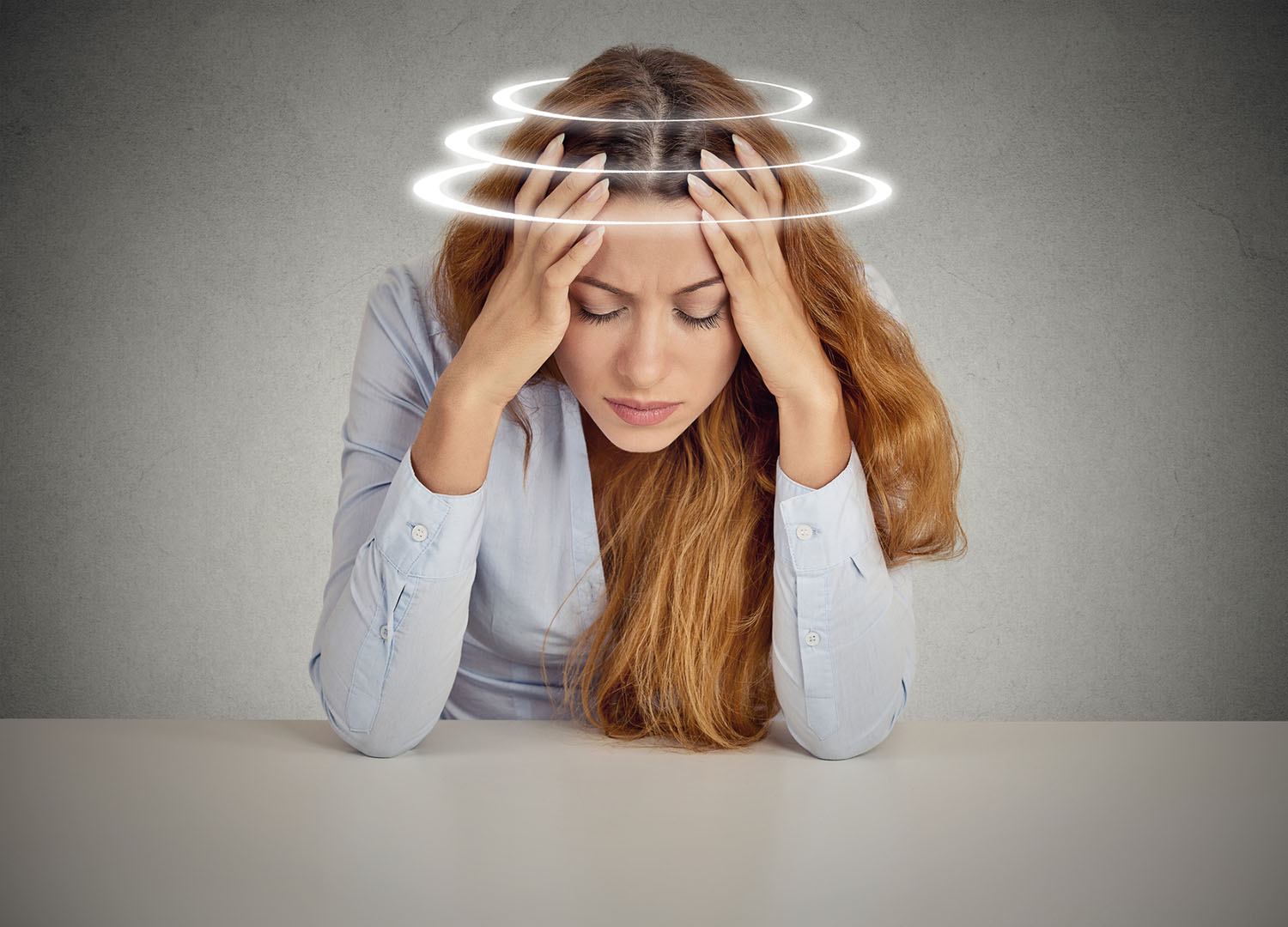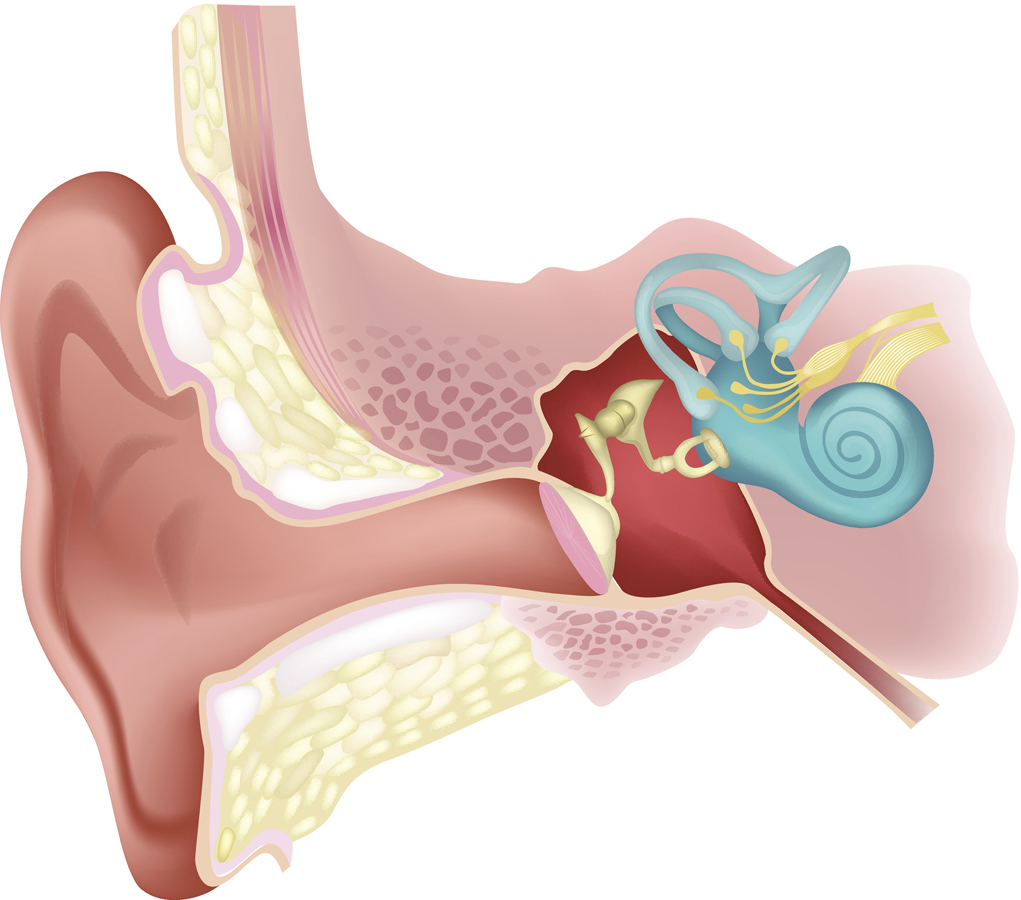Dizziness or Vertigo
How to distinguish?

“Doctor, I have dizziness when sitting in a bus for long-distance journey. Is there any way to avoid dizziness?”
Often hear people say that there is motion sickness, which cause dizziness when taking car or airplane, is this caused by balance disorder? Why dizziness or vertigo happens?
Dizziness is different from vertigo. The former is just a feeling of top-heavyness and unsteady walking, while the latter feels spinning or swaying movements and even vomiting.
There are many causes of dizziness. There are many kinds of dizziness. However, balance disorder is not the cause of motion sickness. It is because the environment in which it is too bumpy or vibrating. Hence it is not balance disorder leads to motion sickness like seasickness or airsickness.
Regardless dizziness or vertigo, women have higher tendency of facing these problems.
Vertigo
Dizziness is graded from mild to severe. Common causes include high or low blood pressure, lack of sleep, and anemia that can cause slight dizziness; while vertigo is a severe-type dizziness, and everything feels like spinning during the attack. Everything patients sees will seem like spinning, and vomiting can occur in some severe cases.
Vertigo is mainly caused by problems in our ears and brains, especially in the middle ear. The worse scenarios are brain tumours or strokes, or accidental concussions, bacterial infections, etc. Particularly, stroke patients may feel dizziness until they unable to move completely.
Dizziness caused by the cranial (brain) nerves, the most common is stroke, followed by various cranial nerve problems, but not many vertigo patients are related to latter.
Conversely, benign paroxysmal positional vertigo (BPPV) caused by ear problems is common cause of vertigo, and the main cause is inflammation of the middle ear.
The human’s middle ear has both hearing and balancing functions. The latter half of the canal has some otoconias (crystal-like) that play a balancing role. Once the otoconias are displaced and cannot return to its original position, patients will feel dizzy when they turn their heads one side or while they are sleeping.
However, most patients couldn’t tell if they were dizzy or vertigo, so when they visit doctors for the first time, they would do a “Dix Hallpike test” position test. Once a patient lies down, he or she feels dizzy and results specific movement patterns of eyes, named nystagmus, then diagnosis of vertigo can be made.
People with vertigo problems will not be affected in daily life. Symptoms only begin when they are sleeping or lying down or when they look up or down. So far we are not sure about the cause of displaced otoconias, probably accidents only accounts for 10% of these cases.
To treat the vertigo problems caused by displaced otoconias, a method named “Epley Manoeuvre” to allow the patient to lie on the bed, and then quickly change the patient’s head movements and body postures by using gravity and letting the displaced otoconias guided back into place, no medication is required.
Normally, “Epley Manoeuvre” is applied once to get the desired result. After about a week later, patients will be examined again to confirm their vertigo conditions are under controlled.

Endure for many years to find a doctor
There is no limit to the age of vertigo, generally patients are coming from age group in between 40 to 50 years old.
Due to the inability to distinguish between dizziness and vertigo, many patients have seen several general practitioners at least. Only after experiencing some failures on their treatments. They will start consulting specialists instead. As a result, 70% of patients have to endure the dizzy spells for several years before they got the right doctors and treatments.
As for dizziness, very often it happens because of blood pressure is either too high or too low. Once blood pressure is unstable, patients will have a sensation of falling. Anemia will also demonstrate this kind of sign too, but it will not be as severe as vertigo until vomiting takes place, nor patients will feel the sensation of spinning.
Migraines may also cause dizziness, dizziness lasts for a few minutes only. In contrast, vertigo usually does not exceed one minute. Therefore, if patient feels dizzy for few minutes during the examination, doctors would suspect patients are suffering migraine.
Migraine is a very complex condition. Some people start in their teens. Some are caused by congenital genes. Patients can only take medications to control and cannot be cured.
However, if patients experiencing dizziness during their childhoods, they need to take X-rays and check their eyes. This may be due to a problem in their brains. Children need to take medicines for long-term.

Inner-ear infection
Another kind of vertigo caused by inflammation of the ear ─ Vestibular Neuronitis is caused by bacterial infection of the inner ear. The patient may experience dizziness from time to time, sometimes sitting, sometimes lying on bed at midnight. The external things seem spinning and will last for several hours. Vomiting can also happen on severe cases. Patients may not even eat and require hospitalisations.
However, in general, vestibular neuritis will recover on its own in a few days, unless it is serious enough and require hospitalisation, and it will not affect hearing after recovery. This inflammation is not common and may be caused by a cold or fever bacterial infection.
Labyrinthitis’s vertigo, similar to symptoms of inflammation, its dizziness appears suddenly, and nystagmus appears despite there is no change in posture. It may last for several days, this is because the entire inner ear is infected, which can also affect hearing and cause tinnitus (ringing in the ears), but it does not cause pain.
However, those patients with weak immunity, vertigo problems caused by cold or bacterial infections may affect their cranial nerves, thus affecting the hearing even after recovery, inclusive persistent tinnitus. If it disappears within 1 to 3 months, there is no long-term problem. Should this condition remains the same after few months, patients may not able to heal permanently, sometimes even causing complete deaf.
All vertigos caused by inflammation will require medical treatments, otherwise they will recover on their own.
On the other hand, chronic uncompensated labyrinthitis can bring many sequalae. Although this disease is caused by bacterial infection, its inflammation cannot be removed completely. Vertigos can happen once patients’ movements become too intense, and it takes a while to return to normalcy after resting. In addition to medication control, this kind of inflammation may also need patients to get vestibular rehabilitation therapy and do some balance exercises later.
However, if the patient does not have any tinnitus and hearing remains unaffected during the test, solely dizziness presents, then doctors will need to exclude the possibility of vestibular neuritis or labyrinthitis and find out if recurrent vestibulopathy exists. This medical condition can be controlled by medicines.
Meniere’s disease
The vertigo of Meniere’s disease comes suddenly. It is accompanied by tinnitus and poor hearing. It is usually a one-sided headache. It lasts from a few minutes to half an hour before slowly returning to normal.
To those severe cases, it is necessary to take medications to control the fluids within inner ear. If patient feels dizziness every few weeks, he or she will need to take medicines for a long time.
In fact, there are fluids found in the inner ear. When the level of fluids is imbalanced due to some reasons, the above symptoms will appear. The real cause of Meniere’s disease remains unknown.
Children rarely suffering from Meniere’s disease, whereby most of the patients aged over 50 years old.
With respect to the conditions like air-sickness and sea-sickness, it is not caused by Meniere’s disease. Dizziness happens because of external vibrations become too powerful, coupled with sensitive inner ear.
As mentioned above, the dizziness of Meniere’s disease is a sudden-type and can happen without any reason. To avoid sea-sickness or air-sickness when taking car, plane or boat ride, it is best to sit in the front seat and look outside.
To avoid symptoms mentioned above, there are drugs available to be taken by public.

Why motion sickness like sea-sickness or air-sickness can happen?
In fact, the cause of motion sickness like sea-sickness, car-sickness and air-sickness, is the same. It happens when the sense of motion within inner ear is different from the motion we visualise.
The balance of the body is mainly count on vestibular nerves, eyes, skin, joints, and muscles of the inner ear, of which the received messages are integrated to maintain our balance.
Therefore, when the signals received by body are not synchronized, there will be motion sickness. For example, when eyes see a car is stable from interior viewpoint, but the other parts of the body sense the shaking of the car, it will cause motion sickness.
Regardless of the type of transportations, the symptoms of motion sickness are basically the same, for examples nausea, vomiting, pale, cold sweats and so on. Try to avoid staring at the books or screen when we are on board, otherwise it will motion sickness easily.






